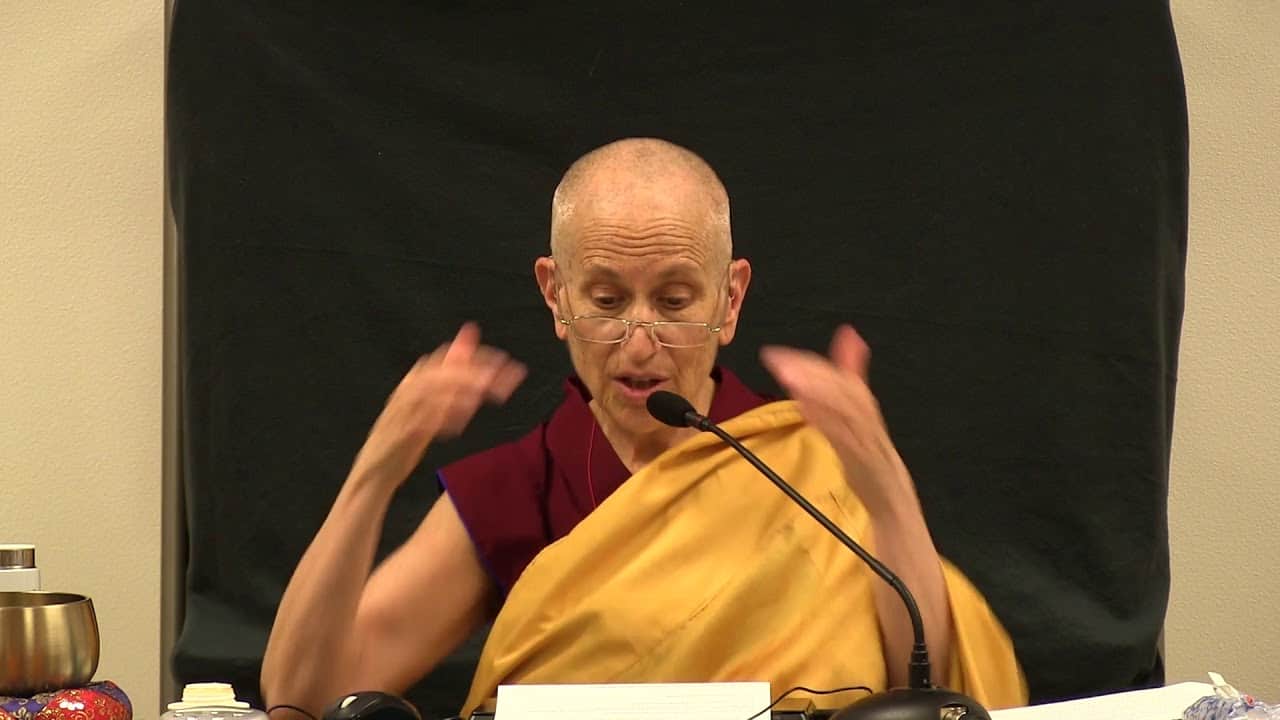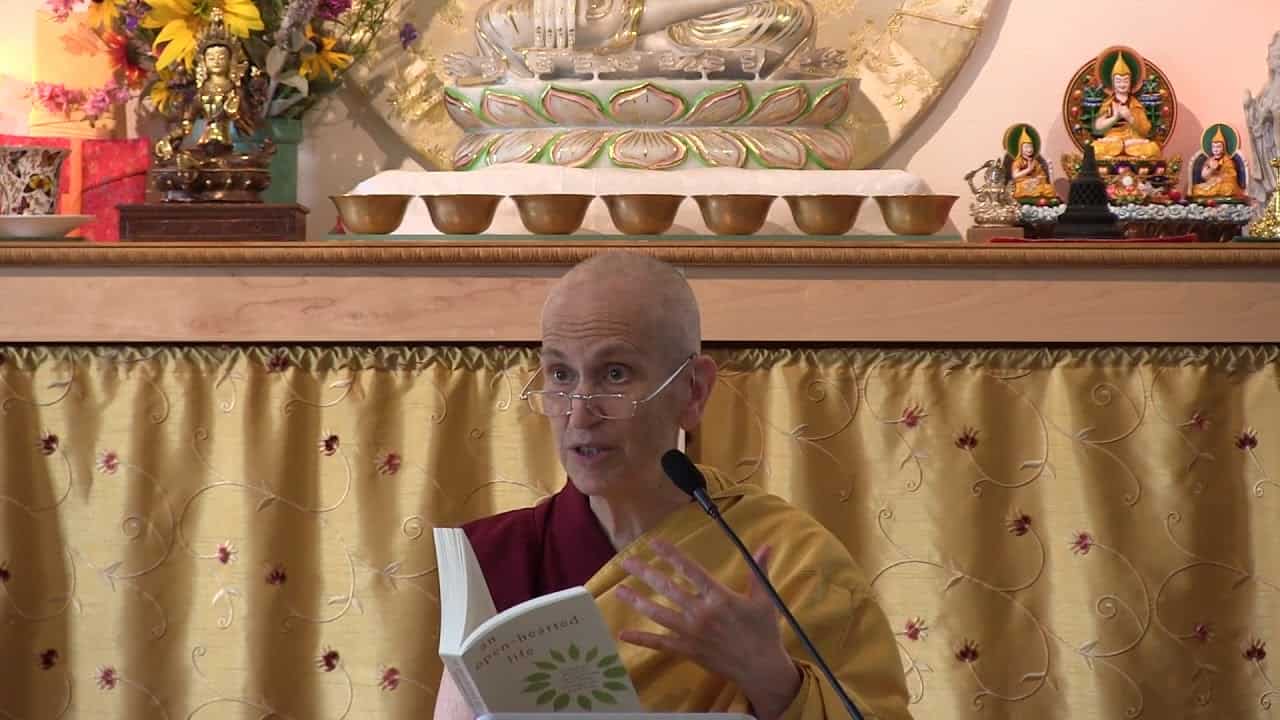Straight and clean clear
Straight and clean clear
Part of a series of short talks on the pithy verses from the end of Lama Yeshe’s book When the Chocolate Runs Out.
- Keeping our ethical conduct straight and clear
- Keeping our mind clear
- Being a kind human being
Continuing with some of Lama Yeshe’s pithy instructions here. The previous line he said, “don’t be afraid of death.” In other words, getting us to not fall into that panicky kind of death but to really realize our mortality and therefore use our lives wisely and do things that are beneficial for ourselves and others and not harm other living beings.
Then the next line, which I’m going to talk about today, says,
Even if you are going to die tomorrow,
at least for today keep yourself clean clear
and be a happy human being.
Even if you’re going to die tomorrow. You’re not going to be able to complete the whole path from today until tomorrow. Don’t freak out. But today, while you have time, while you have clarity. When he says “keep yourself straight and clean clear,” he means keep our ethical conduct straight and clean clear, keep our mind clean clear, not foggy, not “Shall I do this?” “Shall I do that?” “How do I eke the tiniest little bit of pleasure out of this situation, and how do I convince somebody to do what I want them to do but without them knowing that I’m manipulating them?” In other words, not having this kind of nonsense stuff in our mind, but just be a sincere human being who treats others with respect and with kindness. Not always trying to make ourselves the big guy who’s more important, who’s recognized, who everybody bows down to and all that kind of stuff.
Be clean clear and be a happy human being. Even if you’re going to die tomorrow, might as well be a happy human being. Now, what does being a happy human being mean? Contrary to popular belief, it does not mean going to the mall and buying stuff, and it does not mean going to the car dealers and buying yourself a new car, and it doesn’t mean going on a fancy-schmantzy vacation. When he’s saying “be a happy human being,” he’s meaning just don’t create all these horror stories in your mind about “this can go wrong” and “that can happen” and “if I don’t get accepted to this college, then my whole life is over” and “if I don’t get this job, then I’m never going to be a success.” “If I lose my job, then the sky is falling.” How we just take everything and make some big kind of thing over it that actually makes us quite miserable.
He’s saying “don’t waste your time.” If you’re going to die tomorrow, don’t waste time worrying about like “who’s going to get my stuff?” “I’m going to die, but who do I want to get this?” “Who do I want to get that? “When they go through all my stuff, what are they going to think of me?” “Oh no, they’re going to read all my old letters to my high school boyfriend. I’ve got to clean that drawer out immediately, even though I am going to die tomorrow, because I don’t want anybody to see those letters.” Relax, that’s basically what he’s saying. Don’t create so many dramas. Live with your ethical conduct, be kind, good enough. Now the next drama is… who wants to talk about their drama?
Venerable Thubten Chodron
Venerable Chodron emphasizes the practical application of Buddha’s teachings in our daily lives and is especially skilled at explaining them in ways easily understood and practiced by Westerners. She is well known for her warm, humorous, and lucid teachings. She was ordained as a Buddhist nun in 1977 by Kyabje Ling Rinpoche in Dharamsala, India, and in 1986 she received bhikshuni (full) ordination in Taiwan. Read her full bio.


